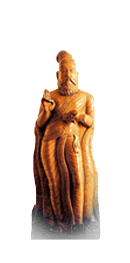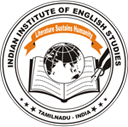| |
Contents
|
|
| |
1. Gendering the Partition Narrative: a Reading of Bindu Bhatt’s Akhe Patar
|
|
| |
|
Rakesh Desai
|
|
| |
|
|
|
| |
2. Asif Currimbhoy’s “The Refugee”: A New Historicist Reading |
|
| |
|
G. Vasishta Bhargavi |
|
| |
|
|
|
| |
3. Playing With History and Fiction: Language as Medium |
|
| |
|
Anusha U. R
|
|
| |
|
|
|
| |
4.Slaughter of the Soul in Pursuit of Perfection: A Study of Mahesh Dattani’s Characters
|
|
| |
|
Umed Singh
|
|
| |
|
|
|
| |
5.
On Love, Loss, Drunkenness and the Passage of Time:An examination of
the Individual’s Struggle for Salvation in Li-Qing Zhao’s “Like a
Dream,” “Rogue the Lips,” and Lamentation”
|
|
| |
|
Fiona N. Gurtiza |
|
| |
|
|
|
| |
6. English Language Teaching in India- An Overview
|
|
| |
|
Sunandita Sarker
|
|
|
|
|
|
| |
7. Reality and Vision of Suicide In Samuel Beckett’s Waiting for Godot and Act without Words I
|
|
| |
|
Subrata Biswas |
|
| |
|
|
|
| |
8. Ecocriticism and the Human Psyche: An Appraisal of Hermann Hesse’s Demian through Jungian Psychoanalysis
|
|
| |
|
Sheena N.G.
|
|
| |
|
|
|
| |
9. Identity Crisis in Bharati Mukherjee’s Jasmine
|
|
| |
|
Stalin.G |
|
| |
|
|
| |
10. The Twofold Narrative of ‘survivor’ in Art Spiegelman’s Maus (A Survivor’s Tale): My Father Bleeds History
|
|
| |
|
Sayantani Saha |
|
| |
|
|
| |
11. The Psychosexual Element in Miller’s A View from the Bridge
|
|
| |
|
Itishri Sarangi |
|
| |
|
|
|
|
|
|


